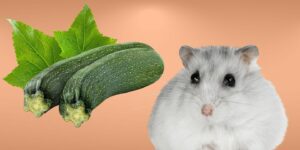Hamsters can eat asparagus as part of a balanced diet, but it should only be given to them in small amounts. Asparagus is high in fiber and vitamins A, C, and K, which can provide health benefits for hamsters. However, it is also high in oxalates, which can cause kidney problems if consumed in large amounts.
Nutritional Content of Asparagus
Fiber in Asparagus
Asparagus contains a substantial amount of fiber, which can help support a healthy digestive system in hamsters.
Vitamins in Asparagus
This vegetable is rich in vitamins A, C, and K, which can aid in maintaining a healthy immune system, skin, and coat, as well as support blood clotting.
Minerals in Asparagus
Asparagus also contains essential minerals such as potassium, manganese, and iron, which can contribute to overall health in hamsters.
Oxalates in Asparagus
However, asparagus is also high in oxalates, which can bind with calcium in the kidneys and form kidney stones. While small amounts of oxalates are not likely to cause problems for hamsters, feeding them asparagus regularly or in large amounts can increase the risk of kidney problems.
Benefits of Asparagus for Hamsters
Digestive Health
The high fiber content in asparagus helps promote healthy digestion and bowel movements in hamsters.
Immune System Support
The vitamins in asparagus, particularly vitamins A and C, support a healthy immune system and can help protect hamsters from illness.
Skin and Coat Health
Vitamin A in asparagus promotes healthy skin and coat in hamsters, contributing to a shiny appearance and overall well-being.
Blood Clotting Support
Vitamin K in asparagus aids in blood clotting, which is essential for the prevention of excessive bleeding and quicker healing of wounds.
Risks of Asparagus for Hamsters
Oxalates and Kidney Problems
Excessive consumption of asparagus can lead to kidney problems due to its high oxalate content. While moderate amounts of asparagus do not pose a threat, it is crucial to monitor the quantity consumed by your hamster.
Frequency of Feeding Asparagus
To prevent potential kidney problems, it is recommended not to feed your hamster asparagus too frequently.
Signs of Kidney Problems in Hamsters
If you suspect your hamster is experiencing kidney problems, consult a veterinarian. Symptoms to look out for include lethargy, weight loss, and a decrease in appetite.
How to Safely Feed Asparagus to Your Hamster
Selecting the Right Asparagus
Choose fresh, crisp asparagus with bright green color for optimal nutritional value.
Preparing Asparagus for Your Hamster
Wash the asparagus thoroughly and cut it into small, bite-sized pieces.
Introducing Asparagus to Your Hamster's Diet
Start by offering your hamster a small piece of asparagus and monitor their reaction. Gradually increase the portion size if your hamster appears to tolerate it well.
Alternatives to Asparagus for Hamsters
List of Safe Vegetables for Hamsters
Some safer vegetable alternatives for hamsters include:
- Broccoli
- Carrots
- Cucumber
- Spinach
- Sweet bell peppers
List of Unsafe Vegetables for Hamsters
Avoid giving your hamster the following:
- Onions
- Garlic
- Tomato leaves
- Potato sprouts
- Rhubarb leaves
Conclusion
In conclusion, hamsters can eat asparagus, but it should be given in moderation and monitored closely for any adverse effects. Like any new food, introduce asparagus slowly and in small amounts to ensure your hamster can tolerate it. A balanced diet is essential for a healthy, happy hamster. If you have any concerns about feeding asparagus to your hamster or are unsure about appropriate dietary changes, always consult a veterinarian for personalized advice.











